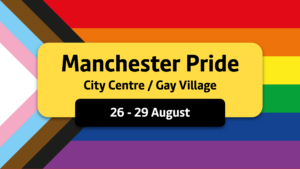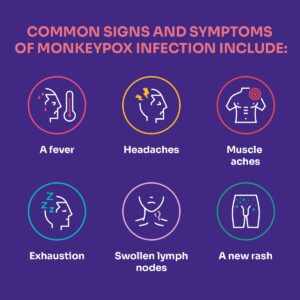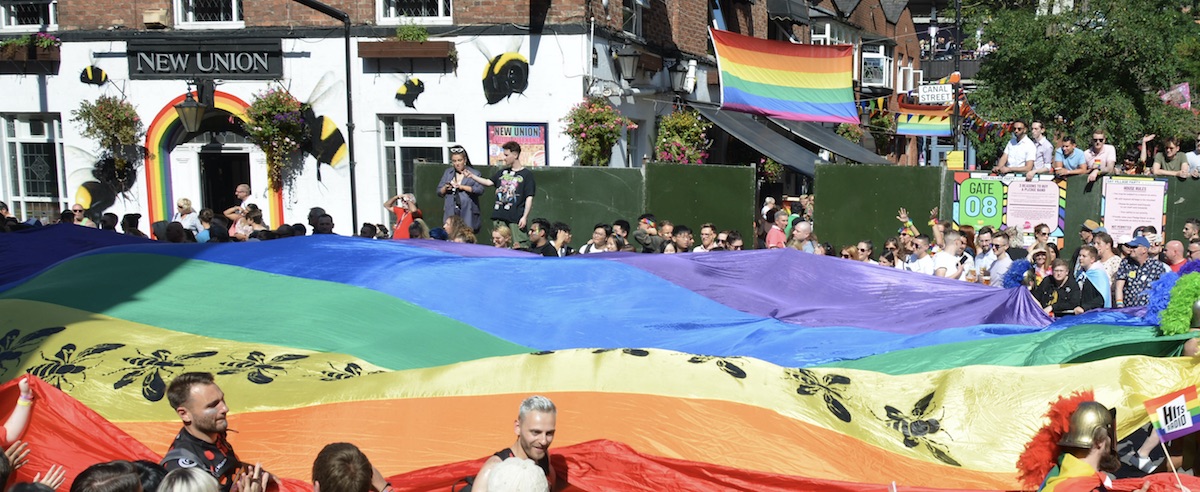Planning on going to Manchester Pride this weekend? Dr Sam Ghebrehewet, Interim Regional Deputy Director of UK Health Security North West, has some words of advice on how to keep each other safe.

As we approach Manchester’s Pride festival this weekend, it is important that people attending are aware of the ongoing Monkeypox outbreak and what they can do to protect themselves and others.
We are continuing to see cases of monkeypox across the North West, with the majority of cases in Manchester and neighbouring Salford. While monkeypox can affect anyone, most cases we are currently seeing are in gay, bisexual and men who have sex with men.
UKHSA North West is working closely with the LGBT Foundation, George House Trust, NHS, Manchester and Salford city councils, sexual health services and other partners to help people understand the signs and symptoms to be aware of and how they can reduce their risk of monkeypox, as well as the importance of taking up the vaccination offer when invited, for those who are offered it.
What we know so far is that the infection is being passed on mainly via close contact in sexual networks. Although Monkeypox isn’t a sexually transmitted infection (STI), it can be passed on via close contact during sex but also by touching, hugging, kissing and sharing towels or bedding.
People who have recovered from monkeypox are being asked to use condoms for 12 weeks after recovering. This is because the virus has been detected in semen, but it is not clear if this is a route of transmission.
In the current outbreak, we know that those with more sexual partners or who attend events at sex on premises venues are more likely to come into contact with the virus.
Vaccination is being prioritised for those people who are at higher risk of getting monkeypox.
It is important to remember that no vaccine is 100% effective and, while the vaccine may not always prevent someone from getting monkeypox, the symptoms experienced are likely to be milder in those who have been vaccinated.
The vaccine also takes time to work. Typically, protection will start to build after a few days and should reach the highest level by about four weeks.

That is why it is important to look at other ways to protect yourself and others. Please continue to be aware of symptoms of monkeypox – even if you have had the vaccine. Common signs and symptoms of monkeypox include fever, headache, muscle aches, exhaustion, swollen lymph nodes and the development of a new rash. This could be a single blister-like spot (or a small number of spots) on the genitals, anus and surrounding area, lesions in the mouth and symptoms of proctitis – anal or rectal pain or bleeding.
Symptoms can vary and not everyone will experience all these symptoms. Please check yourself before you have sexual contact or attend any events.
Pride is a time for the whole community to celebrate but there are some precautions you can take to make it a safe weekend. If you are hooking up with someone new, please consider sharing contact details so that you can get in touch if you develop symptoms later. Symptoms can take up to three weeks to appear, so keep checking yourself after sex.
Be mindful that there are many causes of spots and rashes so please be kind and considerate to others that may have them.
Although close contacts of confirmed cases no longer need to isolate for three weeks, if you have been in close contact with someone with monkeypox, please take a break from close contact with others. This will help limit the chances of you passing on the virus if you do have it.
If you have symptoms, call a sexual health clinic so they can arrange for you to visit safely or call NHS 111. Don’t go to parties or events until you are sure as it can take up to 21 days for contacts of someone to identify the virus.
Keep informed and use trusted sources for information, such as the LGBT Foundation, George House Trust and The Men’s Room etc…
Thanks to people’s efforts to take precautions, come forward for vaccination, look out for signs and symptoms and access services, we are starting to see a decline in numbers of monkeypox cases.
Let’s keep this going and continue to protect each other.
Have a happy, safe and healthy Manchester Pride!

by Dr Sam Ghebrehewet
Interim Regional Deputy Director of UK Health Security North West














